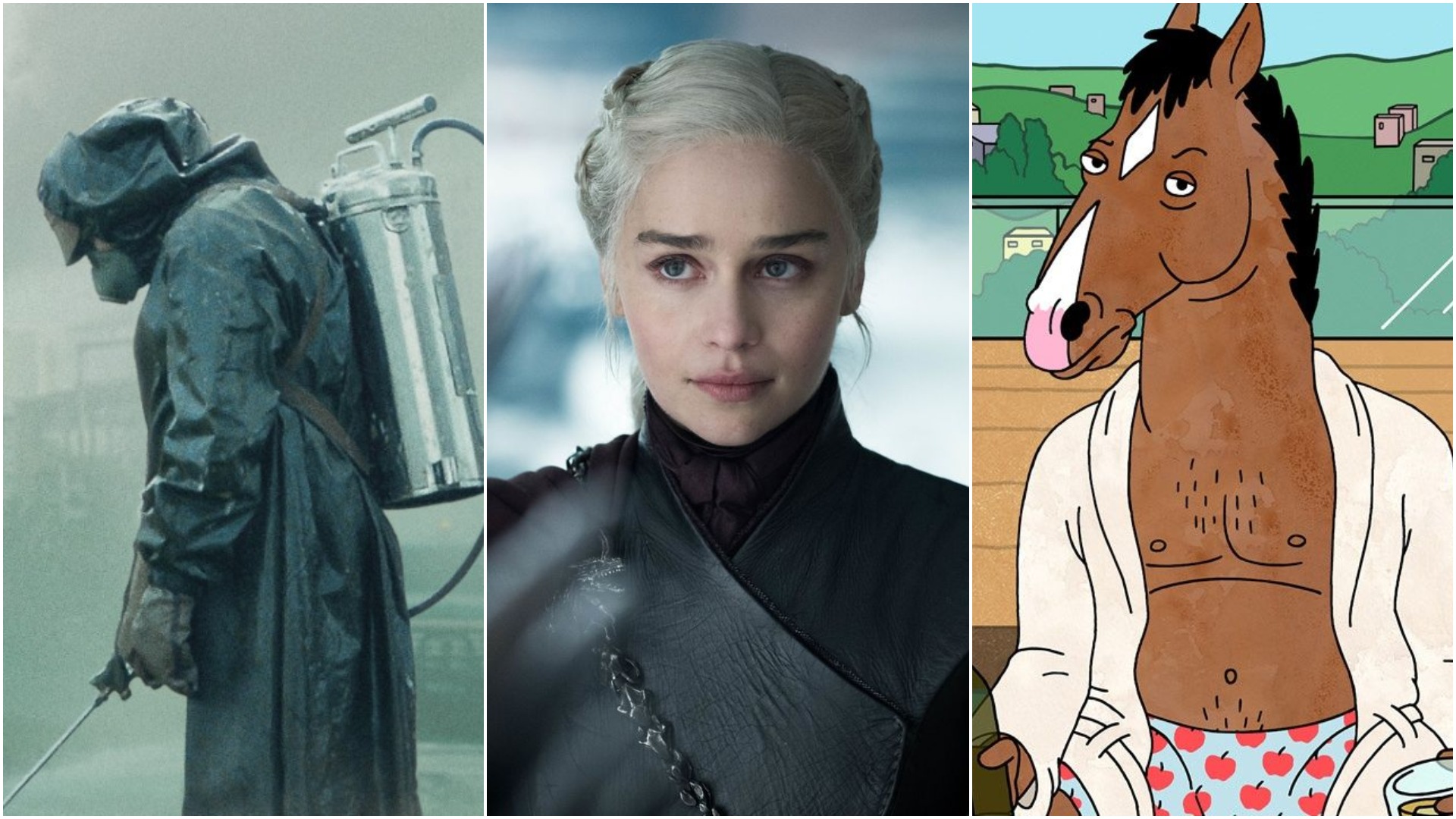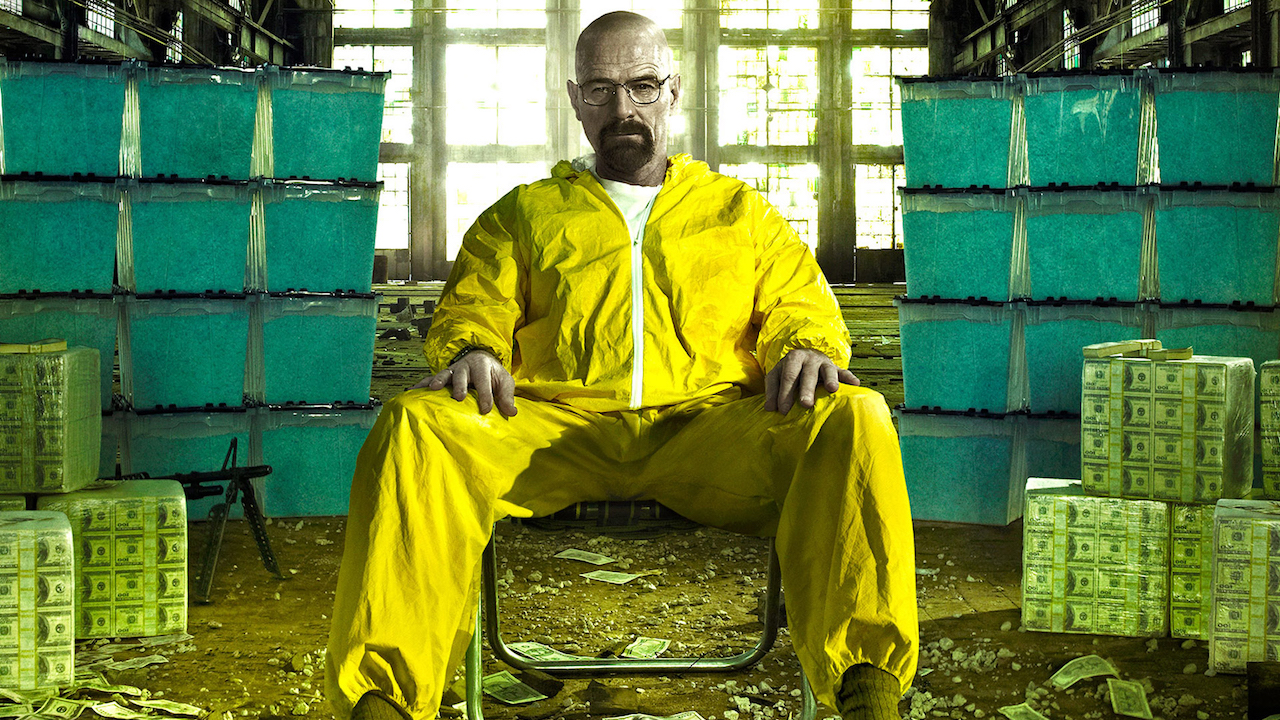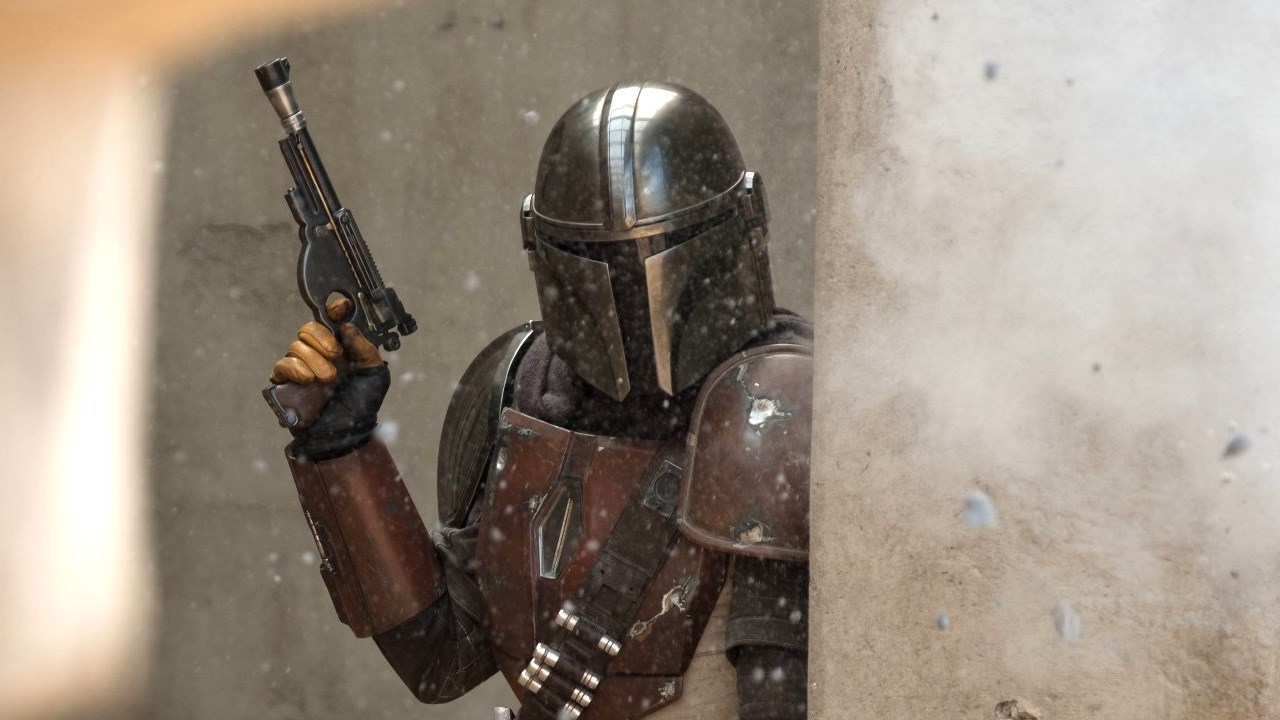We're living through the Golden Age of television – but can it last?
Make the most of TV as it is now, because we'll never have it so good again

I'm sorry to be the one to tell you this, but, unless you're well into your eighties, you've already missed out on the Golden Age of comics – back when Batman, Superman, and Wonder Woman became superstars. And, seeing as it ended sometime around 1960, you would need to be old enough to draw your pension to have any recollection of Hollywood's so-called Golden Age of cinema.
When it comes to television, on the other hand, you're a member of a privileged generation, because there's no question that we're living through the most Golden of Ages of TV. In fact, you could say we've never had it so good.
While there's no shortage of things in life that aren't as good as they used to be, telly certainly isn't one of them. First of all, there's a mind-boggling choice of things to watch thanks to a truly giddying volume of new shows from traditional broadcast networks, cable/satellite channels, and those not-so-new-as-they-were kids on the block: the streaming giants. With Netflix alone putting out an estimated 700 original TV shows in 2018 (spending billions of dollars in the process), there's way too much content out there for any one person to watch in a lifetime, even if they quit their job, give sleep a miss, and make sure their only social interactions are with the sofa and the cat.
Spoiled for choice

The sheer quantity means there's always something to watch, and entire generations of young adults who have no idea what it's like to scour the TV listings looking for their favourite show – or even fretting about setting a video recorder. Pretty much everything is there when we want it, instantly. In fact, missing our favourite series is now less of a concern than how much time we're going to take choosing what to watch next. Talk about a nice problem to have…
Much of the time we don't even have to wait a whole week to get our next televisual fix or see how a cliffhanger plays out. Dropping entire seasons at once is now so commonplace that even the publicly-funded BBC has followed the Netflix/Amazon model by releasing the likes of Killing Eve in one go. "The binge" is nothing new, of course – we caught the bug when DVD box sets exploded onto the scene in the '00s – but that was nothing compared to the fact most of us now have access to the biggest video libraries in the universe at the touch of a button. Every streaming service is practically daring us not to watch the next episode – a pointless gesture, seeing as we know we'll succumb.
Then there's the ease of access. Streaming services like Netflix, Amazon, Hulu, and (in the UK) Now TV destroyed the notion that you have to take out a pricey annual subscription to a cable or satellite broadcaster to get access to the best shows. Plus, with such a high number of platforms hungry for content, many more quality shows make it across the Atlantic, and they make the trip much more quickly. Indeed, the days of hearing about that hot new show from America and waiting the best part of a year for it to appear on UK screens are more or less a thing of the past – we Brits got to watch the later seasons of Game of Thrones at exactly the same time as the US. When all that TV is constantly at your fingertips, there's less incentive or need to go down the piracy route via BitTorrent sites.
Quality… and quantity

But the best thing about living in this Golden Age of TV is the quality. Okay, not everything is a stone-cold classic, but if you do start watching a dud there's no shame in moving on to something else – there's so much good stuff out there that there's no point in wasting your time on the dross. It's not so long ago that series like Breaking Bad, The Wire, Mad Men and Battlestar Galactica stood out as the pinnacle of TV, the shows that everyone had to watch because they were so far ahead of everything else. These days, however, the field is so strong that it's difficult to make a case for any single show. Fleabag, Chernobyl, Line of Duty, Bojack Horseman, Bodyguard, The Good Place… this is just the tip of the iceberg, all of these shows are brilliant and we could sit here all day listing countless others that are all worth your time and attention.
Sign up to the SFX Newsletter
Get sneak previews, exclusive competitions and details of special events each month!
Netflix, Amazon, Hulu, and the rest coming onto the scene has also made everyone else raise their game. They're taking brave chances where nobody else would dare. Look at Good Omens, a novel that languished in development hell for years, until the BBC teamed up with Amazon to make an epic six-parter with production values to die for. You just have just look at the money spent on Game of Thrones' epic "The Battle of Winterfell" to see that TV budgets are now every bit the equal of their big-screen counterparts (what a shame it was so dark we couldn't see it).
With Amazon also reportedly spending enough money on its Lord of the Rings TV show to fund its own country, even Peter Jackson's classic movie trilogy may start to look small. Especially as they'll probably be able to fill Middle-earth with the biggest acting talent in the world. Now that actors no longer see TV as "slumming it", It's surely only a matter of time before even Tom Cruise takes the plunge and headlines his own prestige drama series. So there's no question we're living in a world that's as close to a televisual utopia as we've ever seen. But we should make the most of it while we can because this could well be "peak TV" – there's a good chance we'll never have it this good again.
This can't last forever

We've got so used to having access to almost everything we want on a small number of platforms that it's easy to take it for. But the streaming market is fragmenting, particularly in the US, where Hulu is already a big player and DC Universe appeared on the scene last year. Then there's the small matter of some gigantic media behemoths entering the market over the next 12 months to challenge the market leaders in Amazon Prime and Netflix. As well as the hotly anticipated Disney+ (due in November), there'll be Apple TV Plus, as well as new platforms from NBCUniversal, Warner Bros, and more. While it's easy to see why major studios would want to cut out the middlemen and keep control of their content, this isn't necessarily in the best interests of the consumer. After all, when you're looking at that many platforms, suddenly keeping up with your favourite shows becomes a complicated and expensive business.
The problem here is that no one media company has such a packed asset library, boasting enough hot and varied franchises, that can make subscribing to a bespoke platform an attractive proposition. Disney+ has an in-built advantage over all of its competitors because it can offer Star Wars (in the form of The Mandalorian TV show), Marvel Cinematic Universe TV shows (Falcon & Winter Soldier, Loki, WandaVision), every episode of The Simpsons, Pixar movies and loads more. But is it enough?
Ultimately, it leaves viewers with a choice: miss out on shows you want to watch, or chop and change your subscriptions on a month-by-month basis, to fit around what's airing when. But seriously, who's got time for that? The other alternative is that people will return to the pirate option – in fact, Forbes has reported that after years of decline, BitTorrent sites are growing again. One explanation put forward is consumers being put off by the increasing number of platforms.
Obviously, the more that TV is watched illegally, the less money goes to the TV makers and the less they have to spend on new programmes. And with more platforms competing for cash, it's hard to see how Netflix and the rest can bring in enough income to continue spending at the rate they are now. All those business models are based on growing the subscriber bases, but sooner or later, every streaming service is going to reach a point where they can't grow any more. What happens then? Do they start making fewer shows, or spend less on the shows they are making.
Quality TV isn't going anywhere any time soon, and there isn't going to be some visual armageddon when all the screens go dark. But the thing about so-called Golden Ages is you only tend to notice them when they're gone. So make the most of this period of "peak TV". We may never see anything quite like it again.
Richard is a freelancer journalist and editor, and was once a physicist. Rich is the former editor of SFX Magazine, but has since gone freelance, writing for websites and publications including GamesRadar+, SFX, Total Film, and more. He also co-hosts the podcast, Robby the Robot's Waiting, which is focused on sci-fi and fantasy.


